In this third instalmen of the dossier on Sufism in Morocco, the challenge is to better understand the ancestral link that connects Sufism to Moroccans, the influence it has had on the identity of society, but also and above all the place it could occupy in the future of the country as humanity is now facing important challenges and perhaps the need to organize profound transformations in its way of being and living. To accompany us in this process of reflection, Southeast-morocco.com has sought the knowledge and expertise of Dr. Mohamed Chtatou.
Mohamed Chtatou – After the Casablanca bombings in 2003, the Moroccan government changed its definition of Moroccan Islam to specifically include Sufism, which it believes is a moderate alternative to militant Islam. The origins, implications, and consequences of the adoption of this policy are rooted in the history of Islamic Morocco since the advent of the Idrisid dynasty (789-974).
The government’s adoption and encouragement of the Qadiriyya Boutchichiyya Sufi brotherhood as an alternative to other movements and parties that may express more critical views of the Moroccan monarchy is an expression of the Moroccan religious wasatiyya (middle ground) with tolerance. In this approach, the government assumes that Sufis are apolitical, and therefore not considered a threat and that Sufism can be used to counter Islamist organizations that politically challenge the government.
Before the arrival of any monotheistic religion in North Africa, many Amazigh tribes lived in the region. These communities did not really have a formal religion but rather a tribal way of life that bound them together as a people. These Amazigh tribes thus existed and flourished in North Africa for over thirty centuries and, as a result, it was tribalism that cemented these people together as it became the prevailing social ideology while providing an effective system of governance.
This environment proved to be ideal and conducive for another tribal community that fled their homeland in search of a new and welcoming space to live and prosper. These were the Jews who arrived in Morocco in the year 70 after the destruction of their second temple in Jerusalem by the Romans.
The Jews, because of their matriarchal social structure which they shared with the Amazigh, blended into Moroccan society, and the cultures of these two ethnic groups based on commonalities were transformed into a unity that gave birth to the Judeo-Amazigh cultural substratum which was the basis on which Sufism in the 8th century was able to take root and prosper.
It should be kept in mind that the Moroccan population had very early rejected the orthodox Islam embodied by someone like Oqba Ibn Nafi’ and preferred a dissident from the East, Idris I, to set up a purely Moroccan Islam.
Idris Ier : Born in 743 in Mecca, he is a historical figure of Arab origin, founder of the cities of Fez, Moulay Idriss as well as of the Idrisid Imamate, commonly considered as the first Moroccan state. Of Zaidi faith, he is the great-grandson of Caliph Ali and Fatima, daughter of Mohammed.(Source : Wikipédia)
Oqba Ibn Nafi’ : Born in 622 in Mecca, he was an Arab general in the service of the Rashidun caliphate under the reign of Omar, and later the Umayyad caliphate under the reigns of Muawiya I and Yazid I. He is known to have led the Muslim conquest of the Maghreb from 670. (Source : Wikipédia)
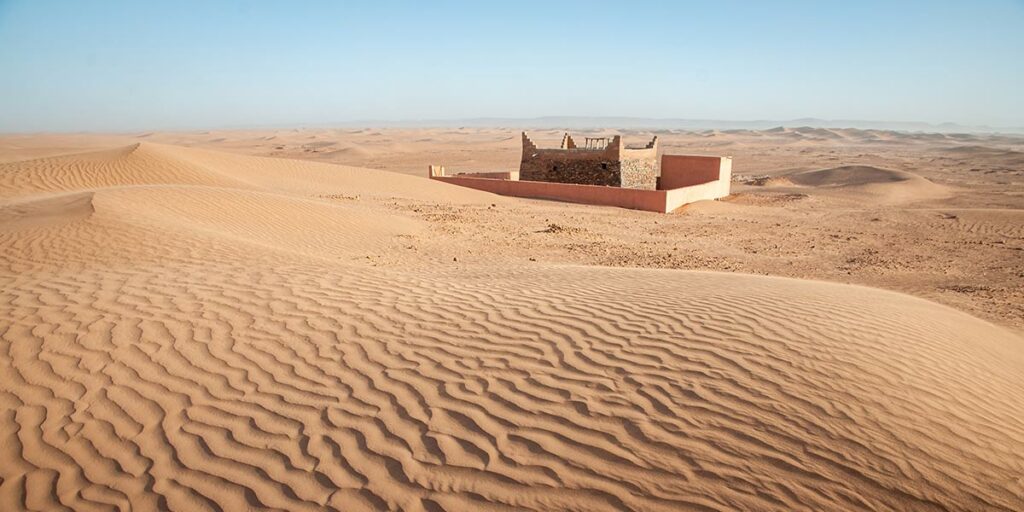
The Berghoautas (742 – 1148), Amazigh warriors, even created their own Islam under the leadership of Tarif Matghari, more flexible and tolerant, by rejecting the pure and hard orthodoxy of an Islam coming from elsewhere. The Amazigh dynasties, although they were a product of the land, had often exaggerated their religious orthodoxy in order to crack down on the Catholics in Andalusia who wanted to reconquer their country and push back the Muslims and the Jews. After the Reconquista in 1492, Sufi Islam became a sort of state religion, which subsequently favored its development throughout Morocco, giving rise to Sherifism and Maraboutism. This climate of harmony attracted the tariqas (brotherhoods) of the Sufis of the East who came to settle in Morocco to develop and prosper and even to spread in Africa as happened with the Tijaniyya brotherhood.
However, some Sufi orders became so rich and consequently strong and powerful, like the Dilla’iyya zaouia or the Dila zaouia, that they flirted with the idea of taking power but were eliminated by the Alaouite Sultan Moulay Rachid in 1668, and their zaouia burned down, to show the Sufis that it was better to stick to religion and stay out of the political field in Morocco.
Mohamed Chtatou – Moroccan Sufis set up their zaouias all over Morocco, especially in rural areas. Their primary mission was to consolidate the faith of an illiterate peasant population, teach the precepts of Islam, spread the message of tolerance, heal believers, and even teach them trades. Thus the Sufi Sidi Ahmed Cheikh settled among the Jbalas of Tatoft, north-east of Ksar Kebir in the 16th century. He taught the peasants the use of music to cure psychiatric illnesses, receiving in return food or money offerings. This tradition gave birth to a musical group called the Jajoukas which is known worldwide today for their trance music.
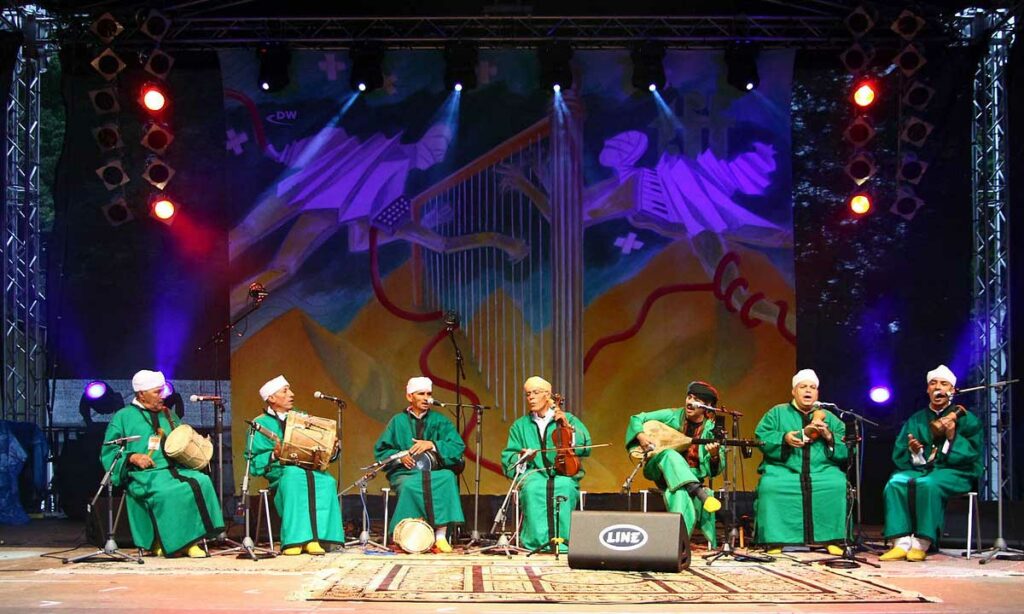
Thus, throughout the history of Morocco since the 15th century, zaouïas and marabouts have specialized in medical care using ttib nabawi (the medicine of the Prophet), and this has allowed them to make money through generous offerings from the people. In addition, when believers visited Sufi masters, they paid them money called ziyyâra (visit tithe). Not to mention traditionally every year, the sultans would reward these saints with a substantial amount of money called hiba sultaniya (sultanic gift) to guarantee their allegiance and offer them agricultural land and trade amenities.
As a result, these saints became rich and influential in society because they redistributed this wealth to the poor to rally them to their cause and their dacwa (preaching). All these practices still exist today and nothing has changed one iota.
Sufi brotherhoods, actors of social mediation between tribes
Mohamed Chtatou – Historically speaking, Moroccan Sufism has always been concerned with the spiritual development of the belief and without temporal ambitions. Moreover, a great number of zaouïas as well as the sanctuaries of the marabouts were installed far from the cities on mountain ridges to show their rejection of materialism, of power, in favor of spirituality. Thus, the brotherhoods openly engaged in proselytizing, preaching, and charity to emphasize the mystical value of life.
In the Sufi brotherhoods, life consisted of dhikr (incantation), prayer and meditation sessions. Apart from that, they practiced social mediation between tribes and clans to regulate problems of grazing, exploitation of forests and communal lands as well as irrigation rights.
In the Rif, during the period of the Rifublik 1889-1921 (period of open dissent and revolt), tribes and clans often entered into armed conflicts that cost dozens of lives. These massacres were only stopped by the intervention of the maraboutic brotherhoods who declared the amân (protection and security) by planting a green flag in the no-man’s land, thus calling the belligerents to negotiate.
In addition to this, the zaouias were very active in social action through the system of twiza, collective volunteer work, in favor of a community member to build a house or harvest. The twiza could also be a fundraiser to help a community member organize a wedding party or funeral.
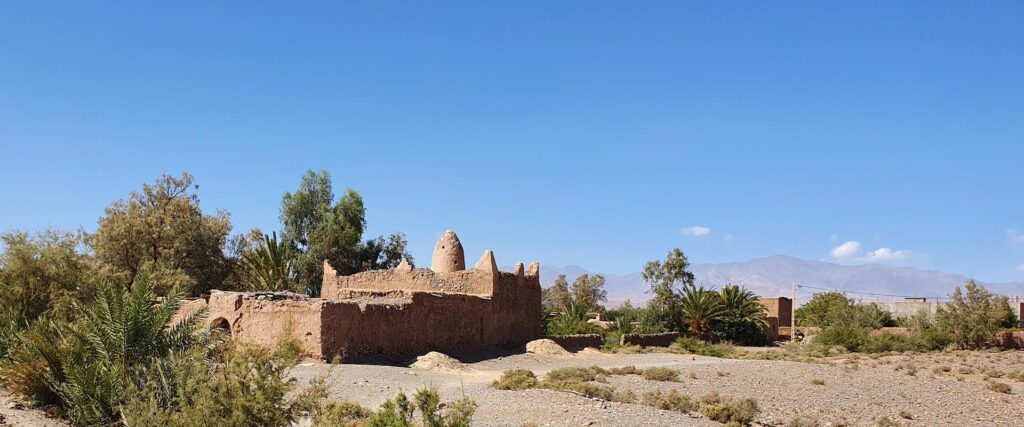
Progress and change are integral to Moroccan Sufi spirituality
Mohamed Chtatou – The concept of Sufism is both complex and multidimensional. Its complexity is due to its long history and its absorption by various cultures in Asia and Africa. Its multidimensionality lies in the various interpretations of its principles and doctrines. The concept of Sufism, in its broadest sense, encompasses individual purification, spiritual reconciliation of body and soul, and universal values to which all human beings adhere.
In Morocco, Sufism is an old spiritual tradition that continues to attract young people. The main reason for this attraction is that progress and change are integral to Moroccan Sufi spirituality.
Thus, festivals such as the annual Sacred Music Festival in Fez, and the accompanying intellectual and cultural encounters, chants, and trances, constitute a powerful means of social expression through which the secular and the sacred merge in enchanting moments that lift individuals above material concerns, reconcile body and soul, and bring the local and the universal together.
As such, Sufism can be a source of inspiration for young people seeking interfaith dialogue. By providing a spiritual space that material modernity cannot, Sufi Muslims are helping Moroccan communities adapt to the pressures of modernity and the turbulence of today. Sufism’s appeal is also due to the fact that it does not prohibit modern means of entertainment, unveiling, or mixing dances and songs. On the contrary, the difference between virtue and vice is not determined by appearance, but by intention and action.
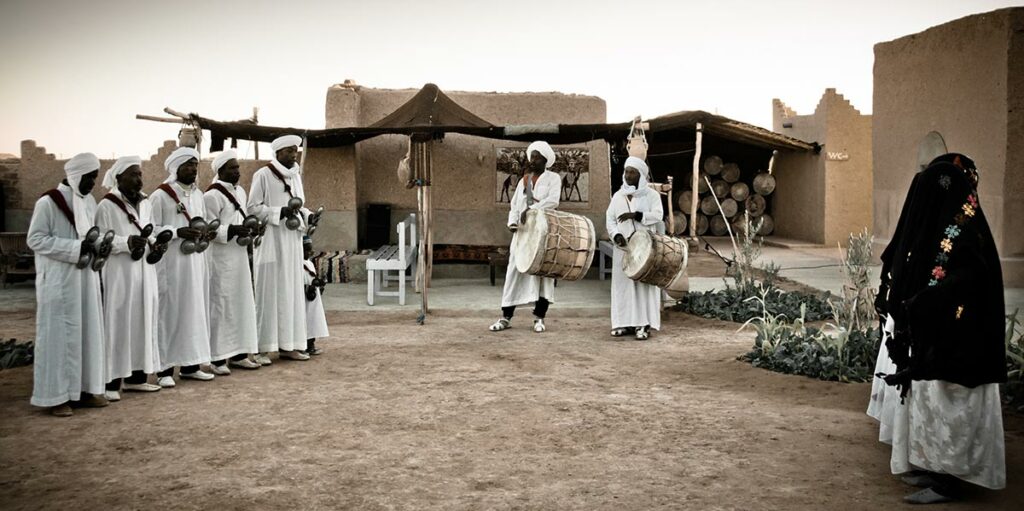
Sufism is thus a characteristic of the different currents of Moroccan music. It is very present in the lyrics of urban artists like Jil Jilala and Nass al-Ghiwane (the 1970s) as well as in the music of the Saharan Gnawas. The Gnawas are the descendants of African slaves brought to Morocco between the 12th and 17th centuries. More recently, Fnaire, a hip-hop group, has mixed Sufi traditions with American rap and is extremely popular with young people. A typical example is Rai music, a version of hip-hop that draws on Sufi poetry by focusing on the body, simple expressions, and invocation of the healing power of male and female saints. In this poetry, saints are seen as spiritual masters capable of uniting individuals with God.
Moroccan Islam is rooted in Sufism
Almost six years ago, in a letter read at the opening of the third international forum of the followers of the Tariqa Tijaniya in Fez, King Mohammed VI praised the role of Sufism in spreading spiritual security and the values of love and harmony in order to “block the way to the proponents of radicalism, terrorism, dissension, dismemberment, and mystifying doctrines.
Religion has always been important for Moroccan but in a dimension of moderation and tolerance. It is because of this moderation that Jews have been able to live and prosper in Morocco for 2,000 years. When the Sephardic Jews were expelled from Spain in 1492, Morocco was one of the few countries to open its doors to them.
Moroccan Islam – a term rejected by Islamists who believe there is only one Islam without local colorations – is thus a mixture of Sufism and Maraboutism. In Morocco, there are dozens of Sufi lodges and orders that pledge allegiance to the monarchy and give it religious legitimacy and political strength.
This is why Morocco emerged unscathed from the Arab uprisings and the subsequent Islamist takeover. This is due to the predominance of Sufi Islam in the majority of Moroccan territory, which is almost as old as the monarchy itself.
Moroccan Sufism, represented by Maraboutism, is naturally tolerant, open and accepting of the other in his “otherness”. It has earned the country the respect of the whole world. Today, many countries turn to Morocco to benefit from its religious experience, particularly in the training of imams. Dozens of foreign students are enrolled at the Imam Academy in Rabat.
The interaction between Sufism in Morocco and religion and culture, in general, is unmistakable. Morocco has always had a historical contextualization of Sufism, and over time many Sufi practices and ideals have become integrated into Moroccan Islam as well as Moroccan culture as a whole, to the point that many Moroccans I have interacted with are unable to separate one from the other or trace certain practices back to their Sufi origin.
Although many Moroccans do not yet know much about Sufism, they receive the side effects in their lives. Their Sufism-infused society is thus promoting increased tolerance and decreased religious radicalization, especially among Moroccan youth, and because of the alternative option of Sufism Moroccan Islam is thus deeply rooted in Sufism. And this has proven to be an effective antidote to religious extremism and proof that the Moroccan exception is a tangible reality in the Muslim world.
Mohamed Chtatou – Sufism has always been a universal theological approach, i.e. open to all those who believe in a merciful and benevolent God and who want to meet him through the path of peace, love, and goodness. Sufism is therefore a practical philosophy within the reach of every human being, without exception, in search of spiritual harmony and inner peace.
The pandemic, caused by an invisible “little thing”, has shown the limits of man but also his harmfulness by destroying, shamelessly, his environment, his habitat, and his earthly paradise for very low materialistic purposes. In doing so, he has destroyed the ecological balance. The time has come to return to God through eternal goodness and love for one’s fellow man and Sufism offers us the means and philosophy to do so.
Sufi Morocco can guide us towards harmony in life
Morocco has been a Sufi country for over twelve centuries, a country of generosity, hospitality, and love. When a Moroccan offers you a very sweet mint tea, he opens his heart and his home to you. Sufi Morocco can guide you to harmony in life, peace in the soul, and liveliness in the mind.
Let’s bet that Sufi Morocco will offer, in the near future, a tourist product for the dazzling of the senses but also for the ecstasy of the soul, and this through the discovery and the meeting with the natural beauties of the Moroccan territories, courses of “silence”, Sufi meditation training and exercises for the balance of the spirit and the internal peace.
The post-pandemic world should teach man to search for satisfaction internally far from any aberrant and destructive materialism and Morocco, an open and welcoming country, will undoubtedly be able to offer a healthy, responsible and clean tourism for any human being wanting to reconcile with his Creator and his environment.
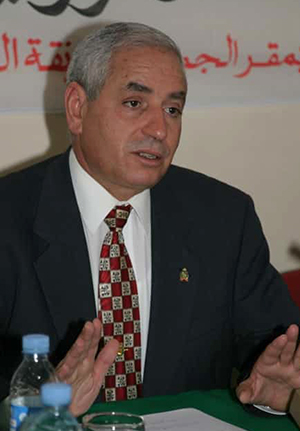
To discover : Dr Mohamed Chtatou est sur moroccoworldnews.com
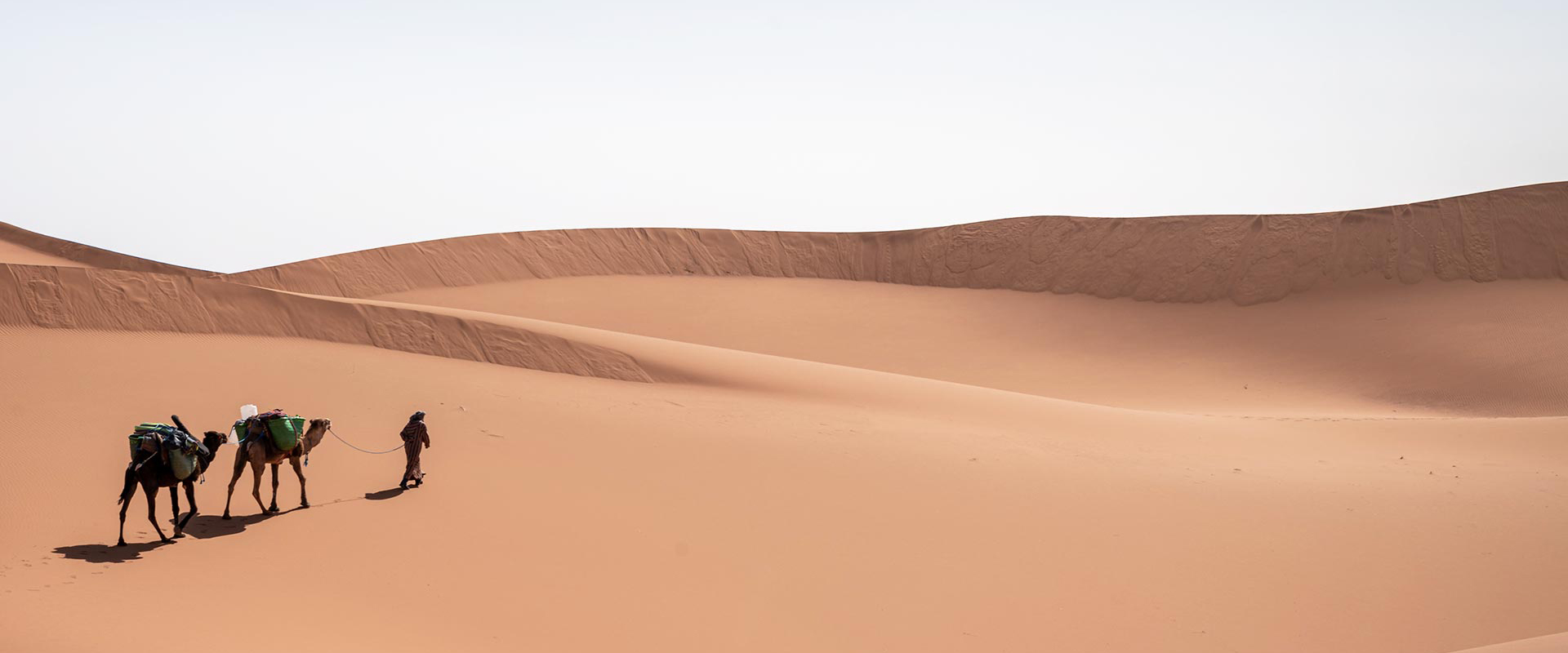

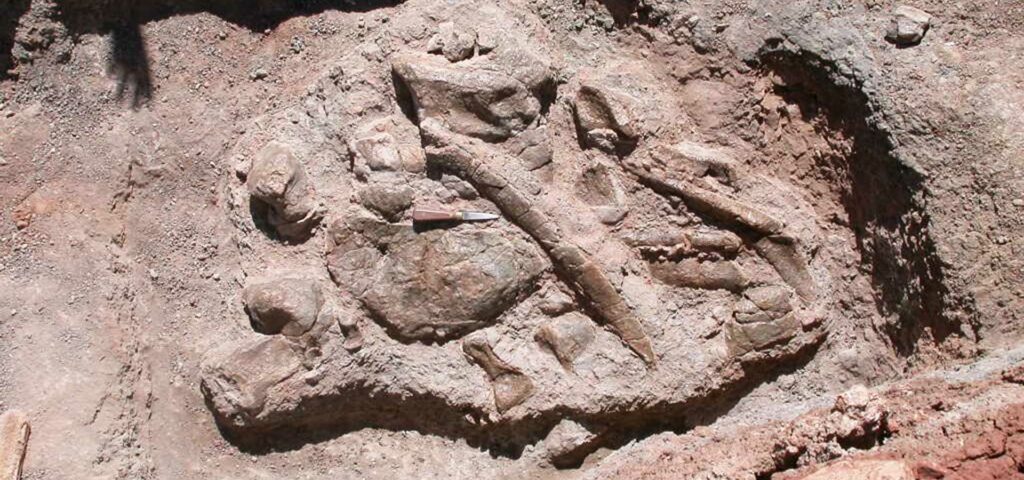
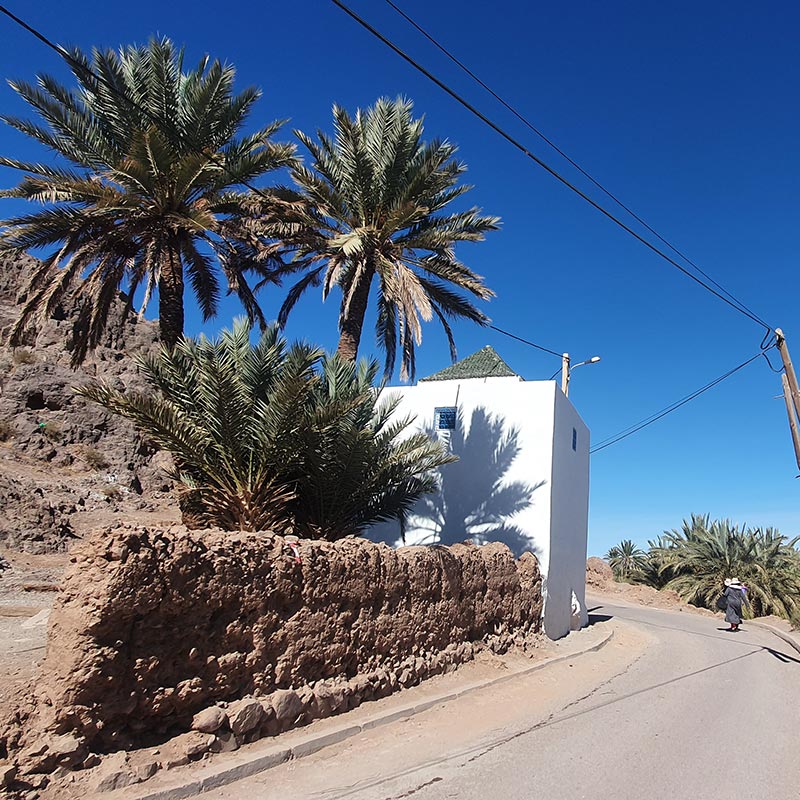
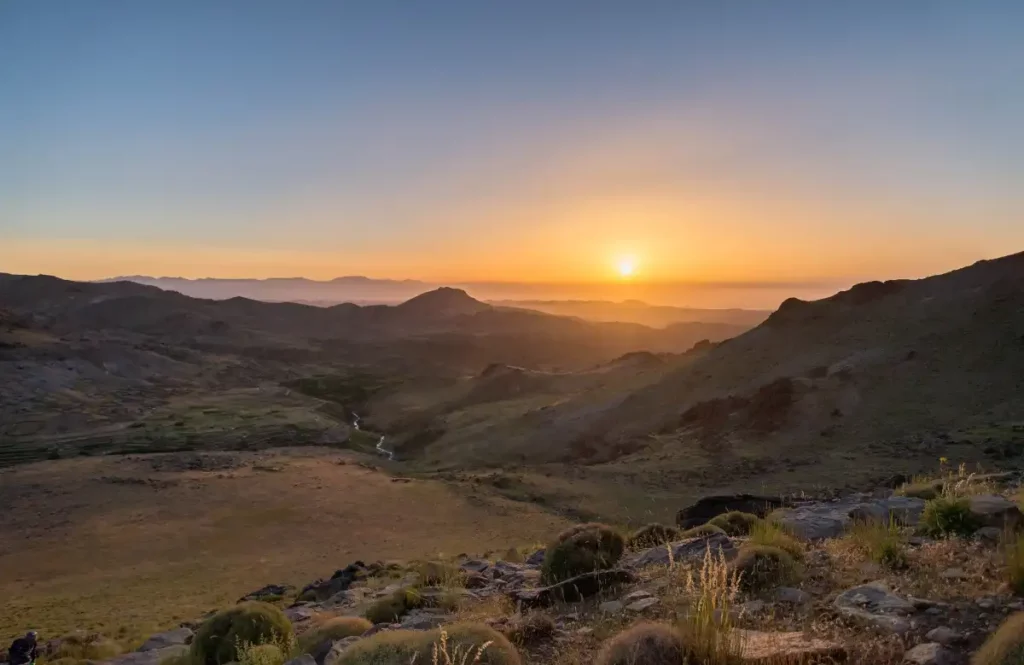
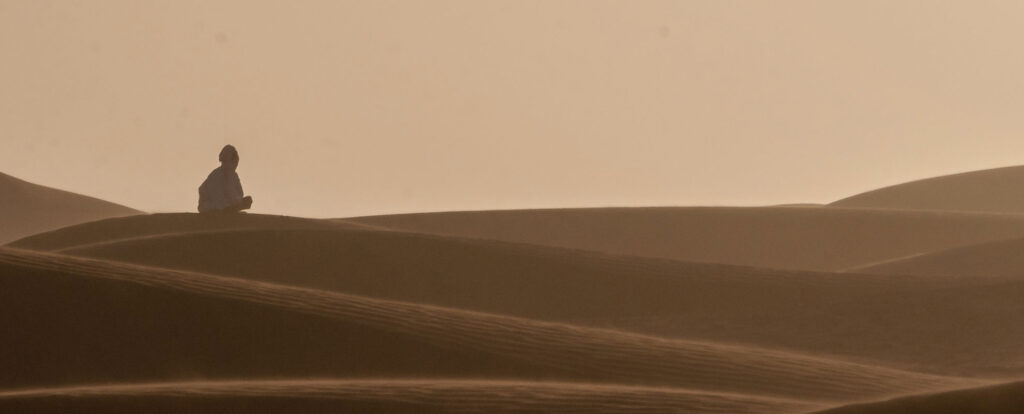
One Response
Amazing how you write and describe this. Wow …